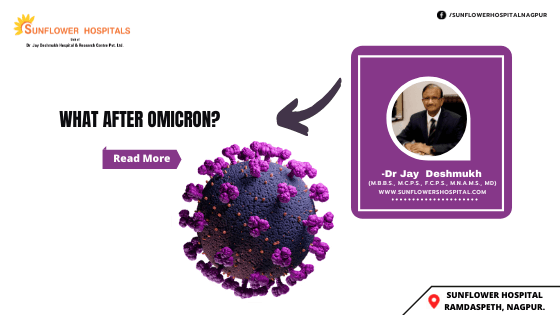There are many speculations about what is in store for us after the Omicron COVID-19 infection. Many think that this may be the end of the pandemic, though few think that another variant may come up in the next 1 year. Whatever is the outcome, we need to be fully aware of what is in store for us and be prepared for any other strain of Coronavirus that may infect us.
Is Omicron the last COVID-19 variant?
According to Dr. Michael Ryan, Omicron is unlikely to be the last variant of COVID-19- 19. Dr. Wang, who represents the World Health Organization, suggests that with billions of people unvaccinated worldwide, plenty of opportunities remain for the Covid-19 virus to spread and generate new variants. Though India is doing enough to vaccinate its population and prevent serious disease, the same cannot be said of many developing countries. Only mass vaccination would reduce the emergence of variants of the coronavirus.
How many have received the vaccine so far globally?
9.3 billion doses of the COVID-19 vaccine have been distributed globally. But only 58% of the global population have received the first dose. In low-income countries, only 8.8% of the population have received the first dose.
What are the views of the Boston University Epidemiology department?
Omicron, which was earlier thought to be the less severe and probable end of the 2-year-old pandemic, may actually be a precursor to some more worrisome variants. The faster the Omicron spreads, which is happening across the world, the more opportunities it gets for Higher mutations, leading to more variants. There is no way to confirm or predict the arrival of the next variant, but there is no guarantee that the future variants may cause milder disease. Dr. Stuart Campbell of Johns Hopkins University is of the opinion that we cannot be confident that the virus will become less lethal over time.
What may happen after Omicron, according to some other experts?
Omicron is likely to lead to reinfections. People infected with delta or other previous variants or even Omicron may get reinfected. It is possible that the virus would become milder, like the common cold virus. But viruses do not get less deadly over a period of time., though Omicron’s initial symptoms have encouraged us to believe that the virus may get less deadly.
What is the main goal of a virus?
Replicating is the main goal of a variant, which is easily possible when infected people get mild symptoms and do not get quarantined. This is primarily the major concern now! Animals are known to get infected and may produce new variants. There could be variants that may have characteristics of both delta and Omicron.
Can the present Omicron pandemic being so infectious lead to herd immunity?
Nobody should think that Omicron is going to make COVID-19 magically disappear. Herd immunity is the idea of a virus just disappearing on its own because it cannot find enough hosts to keep itself infecting people. This is not going to happen. SARS COV 2 is already in animals. Hence, the virus is not going away. But in 2022 the situation can be much more manageable, where aggressive vaccination would help us to keep it in check. Would COVID-19 become endemic? When the virus is endemic, the number of infections every year is at a constant baseline level. People get chickenpox at a steady-state every year. Today, COVID-19 is not endemic. Many experts feel that there would be future waves, but they would be much smaller. In the near future, there would be a very large population either infected or vaccinated. It would be harder for the new variant to find a vulnerable host.
Do we see an end to Coronavirus infection this year?
Most scientists do not believe so. Many experts opine that after this big surge of Omicron that would end in 2 months or so if there are more surges later this year, they are likely to be smaller waves.
What is the scenario in India?
We have done very well as compared to most other countries! After the second deadly delta wave, the infrastructure to handle any new wave has improved. The Omicron wave seems to be less serious in the majority of individuals who have had successfully vaccinated themselves. However, a large group of the population has still not received even the first dose. We need to vaccinate them at the earliest and continue our efforts to administer booster doses to all our people. The most predictable thing about Coronavirus is its unpredictable nature. Who would be infected, who would become seriously ill and who would survive this pandemic is not completely known to the experts as yet. The best solution seems to be an extreme degree of vigilance, masking, vaccination, and social distancing.
Author: Dr Jay Deshmukh
Dr Jay Deshmukh is Chief Physician and Director, Sunflower Hospital, Nagpur Honorary Physician to Honorable Governor of Maharashtra and PondicherryCentral. Dr Jay Deshmukh is an M.B.B.S., M.C.P.S., F.C.P.S., M.N.A.M.S., MD From Internal Medicine – Bombay and New Delhi.


